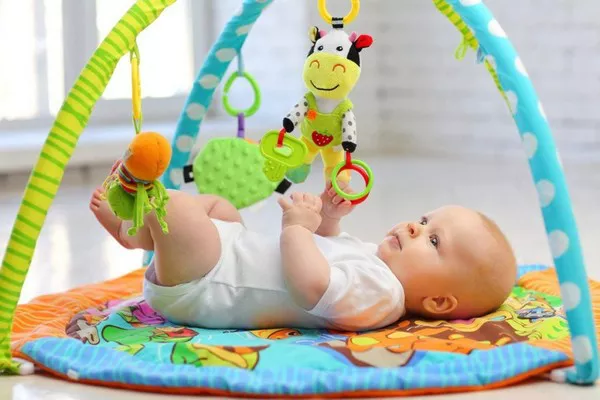As a parent or caregiver, you may be wondering how many words a 1-year-old should be saying. Language development is an important part of early childhood development, and it’s natural to want to make sure your child is on track. In this article, we will explore the typical language development milestones for 1-year-olds and provide some tips for encouraging language development in infants.
Typical Language Development Milestones for 1-Year-Olds
At 1 year of age, most infants are just starting to use words to communicate. Here are some typical language development milestones for 1-year-olds:
- Babbling: By 1 year of age, infants should be babbling regularly. Babbling is the repetition of syllables, such as “ba-ba-ba” or “da-da-da.” Babbling is a precursor to speaking and is an important step in language development.
- First words: Most 1-year-olds will say their first words around this time. These words may be simple, such as “mama,” “dada,” or “ball.” Infants may also begin to understand and respond to simple phrases or commands, such as “no” or “come here.”
- Gestures: Infants may also use gestures, such as pointing or waving, to communicate their needs and wants. They may also use facial expressions, such as smiling or frowning, to express their emotions.
- Understanding: By 1 year of age, infants should be able to understand simple words and phrases. For example, they may respond to their name, understand simple commands like “give me the ball,” or recognize familiar objects like a favorite toy.
- Receptive language: Infants may also start to develop receptive language skills, which means they are able to understand language even if they cannot yet speak it themselves.
It’s important to remember that language development can vary from child to child. While some 1-year-olds may be saying several words and using basic phrases, others may be slower to develop language skills. If you have concerns about your child’s language development, talk to your pediatrician or a speech-language pathologist.
Tips for Encouraging Language Development in Infants
As a parent or caregiver, there are many things you can do to encourage language development in infants. Here are some tips:
- Talk to your baby regularly: Infants learn language through exposure and repetition, so it’s important to talk to your baby regularly throughout the day. Describe what you’re doing, point out objects in the environment, and engage in conversation even if your baby cannot respond yet.
- Read to your baby: Reading to your baby is a great way to expose them to new vocabulary and language structures. Choose books with simple words and colorful pictures, and read with expression and enthusiasm.
- Sing songs and rhymes: Singing songs and reciting nursery rhymes can help infants develop their language skills. Choose songs and rhymes with simple words and repetitive structures.
- Use gestures and facial expressions: Infants often use gestures and facial expressions to communicate before they are able to use words. You can encourage this by using gestures and facial expressions yourself, such as pointing to objects or making exaggerated facial expressions.
- Limit screen time: While some educational programs and apps can be helpful for language development, it’s important to limit your infant’s screen time. Interacting with caregivers and the environment is the best way for infants to learn language.
In conclusion, most 1-year-olds will be starting to say their first words and using gestures to communicate their needs and wants. Encouraging language development in infants through talking, reading, singing, and gesturing is important for their overall development. If you have concerns about your child’s language development, it’s important to talk to your pediatrician or a speech therapist to assess their progress and provide any necessary interventions or support.
Remember, every child develops at their own pace and some may take longer than others to start talking. The most important thing is to create a supportive and nurturing environment that encourages language development and provides opportunities for communication.
In addition to the number of words a 1-year-old should say, it’s also important to consider the quality of their communication and their ability to understand and follow simple commands. This can be assessed through observation and play, as well as through developmental assessments with professionals.
Overall, parents and caregivers play a crucial role in supporting language development in young children. By creating a language-rich environment, engaging in interactive activities, and seeking support when needed, we can help our children reach their full potential in communication and beyond.


